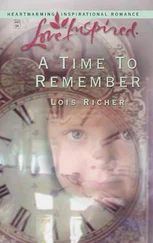Alexander Todd - A Time to Remember
Здесь есть возможность читать онлайн «Alexander Todd - A Time to Remember» весь текст электронной книги совершенно бесплатно (целиком полную версию без сокращений). В некоторых случаях можно слушать аудио, скачать через торрент в формате fb2 и присутствует краткое содержание. Город: Cambridge, Год выпуска: 1983, ISBN: 1983, Издательство: Cambridge University Press, Жанр: Химия, Биографии и Мемуары, на английском языке. Описание произведения, (предисловие) а так же отзывы посетителей доступны на портале библиотеки ЛибКат.
- Название:A Time to Remember
- Автор:
- Издательство:Cambridge University Press
- Жанр:
- Год:1983
- Город:Cambridge
- ISBN:0 521 25593 7
- Рейтинг книги:3 / 5. Голосов: 1
-
Избранное:Добавить в избранное
- Отзывы:
-
Ваша оценка:
- 60
- 1
- 2
- 3
- 4
- 5
A Time to Remember: краткое содержание, описание и аннотация
Предлагаем к чтению аннотацию, описание, краткое содержание или предисловие (зависит от того, что написал сам автор книги «A Time to Remember»). Если вы не нашли необходимую информацию о книге — напишите в комментариях, мы постараемся отыскать её.
A Time to Remember — читать онлайн бесплатно полную книгу (весь текст) целиком
Ниже представлен текст книги, разбитый по страницам. Система сохранения места последней прочитанной страницы, позволяет с удобством читать онлайн бесплатно книгу «A Time to Remember», без необходимости каждый раз заново искать на чём Вы остановились. Поставьте закладку, и сможете в любой момент перейти на страницу, на которой закончили чтение.
Интервал:
Закладка:
Meanwhile, back in England I. M. Heilbron, Professor of Chemistry in Manchester, was appointed to succeed the late J. F. Thorpe in the chair at Imperial College, thus rendering vacant the most important position for a British organic chemist after Oxford and Imperial College. Clearly there would be a bit of a shuffle, but as I never for a moment expected I would be a candidate for Manchester, especially after my experience with the King's College chair, I wasn't unduly perturbed. However, it is only fair to say that, on the night before we left Pasadena, Joe Koepfli told me that he reckoned that I would join the CalTech unless I were offered Manchester; such an offer, he felt, I could hardly refuse, as Manchester was much more in the chemical swim than CalTech and he and (he claimed) Pauling and Millikan considered it more than an outside possibility.
Early in May Alison and I, having already had a look around for a possible house, left Pasadena and travelled in leisurely fashion by the Santa Fe railroad to the east coast, making a brief side-trip to the Grand Canyon en route. Thence we proceeded to Cambridge, Massachusetts and stayed for some days with Oliver and Alice Cope. Oliver, a young surgeon at the Massachusetts General Hospital, had been associated earlier with Sir Henry Dale and in that way knew my wife. We met a variety of the Harvard people there, including the Fiesers, with whom we enjoyed mutual recognition from the Portofino days! Thereafter we returned to New York and sailed for England on the Queen Mary, then the pride of the Atlantic and certainly the largest and most luxurious ship of the day.
(I look back on the various trips made to and from the United States by ship with nostalgia. The 'Queens' in particular were magnificent ships in every way, and the leisurely days spent on the ocean are an abiding memory. I think the last ocean voyage I made was on the Queen Elizabeth about 1954. Air travel has spoiled transatlantic trips!)
We left ship at Plymouth and proceeded to our little flat in Wimbledon where, to my considerable surprise, I found awaiting me a telegram from Sir John Stopford, Vice-Chancellor of the University of Manchester, telling me that Heilbron was going to Imperial College and asking me to come to Manchester on the following Thursday to talk with him about the situation. This I did; I had never before been in Manchester, but I was met at London Road Station and taken to the university. I sat in an anteroom for, I suppose, about fifteen minutes before Sir John appeared, introduced himself and took me along to the Senate Room where, to my astonishment, a group of professors was assembled and it dawned on me that this was in fact a formal interview and that there were probably other 'candidates' there that day also. (This I found later was correct; J. W. Cook and R. P. Linstead had been on the mat before me.) I was cross-questioned about this and that for a quarter of an hour or thereabouts, and then taken by the Vice-Chancellor to his room. By this time I was getting slightly alarmed, and I decided that I really would have to be completely frank with him about my position. I told him that it was clear to me that our 'little talk' had been in fact an interview and that, while I wished to make it clear that I was in no sense holding a pistol at his head, the time available was short. I said I had in my hands a firm offer from CalTech in Pasadena and that I had promised to give Dr Millikan my reply by cable ten days after returning to England, i.e. on Monday, three days hence. I also said that, unless I had an equally firm offer from Manchester before Monday, I would accept the Pasadena offer. Sir John smiled and said ' Don't worry - I quite understand. Sit down with the newspaper - I'll be back in five minutes.' Off he went - and he came back as promised in about five minutes. 'Well,' he said, 'will you take the job?' 'Yes,' said I. And that is how, at the age of thirty, I became Sir Samuel Hall Professor of Chemistry and Director of the Chemical Laboratories of the University of Manchester.
4. Manchester and the move to Cambridge
Having found a house in Withington my wife and I moved to Manchester in late September 1938. It was not a very comfortable month with war-clouds looming in Europe; this was the time of Hitler's annexation of Czechoslovakia and Chamberlain's Munich Agreement. I remember taking a pretty dim view of the situation. Indeed, shortly before we finally quit the Lister Institute I remember being with Franz Bergel (who was just starting up as Director of Research at Roche Products Ltd, Welwyn Garden City) in a pub not far from the Institute and we discussed whether we shouldn't perhaps join the army forthwith rather than wait a few weeks for the actual outbreak of war! However, the worst was not to happen for another twelve months when, as it turned out, we were as chemists kept out of the army to undertake other work of national importance.
At the time I went there, the Manchester school of organic chemistry had a high reputation. The traditions of Perkin, Dixon, Lapworth and Robinson had been upheld by my immediate predecessor Heilbron, who left a well-equipped and progressive department behind him. It was a large school -third in the country after Oxford and Imperial College London (Cambridge, although physically large, had got into a very low state under the ageing W. J. Pope). In those days Manchester was (so Heilbron told me) generally known in the academic world as 'the first-class waiting room'. I could hardly believe that I had been given the job, and I viewed it with some trepidation since I knew that I would be the youngest member of the teaching staff of the chemistry department. I needn't have worried on the latter score - I was welcomed by the whole staff, who were without exception extremely helpful.
(Stopford, tackled in the Athenaeum Club about my appointment, said it was like managing professional football - he would always sign a good man when he saw one, and offered bets that Oxford or Cambridge would be around very soon to try to arrange a transfer!)
Having now got a settled position with a large school and extensive laboratories, I could begin to spread my wings a bit and especially to start something really big even if it might take a number of years and a lot of co-workers to produce any results. My position in research at the time I went to Manchester was roughly as follows:
(1) I had to clear up some of the vitamin E work.
(2) Having found cannabinol inactive and having a supply of Cannabis resin I wanted to get on with my pursuit of the active principle.
(3) In continuation of my vitamin interests I was following up a liver filtrate factor of the B complex and also pursuing anti-anaemic factors in liver extracts.
(4) I had some minor pieces of work, e.g. on Erythrophleum alkaloids of which we had a sample obtained many years earlier from Merck of Darmstadt and from which Blount (in Oxford) had isolated the crystalline erythrophleic acid and done some preliminary work on its structure.
(5) Already in my work with vitamin B1 I had become very interested in the reasons for the importance of vitamins and how they could function. By this time evidence had been accumulating which showed their participation in coenzymes like co-carboxylase, cozymase and flavin-adenine-dinucleotide.
I wanted to go into this field which, certainly from a synthetic point of view, was largely untouched but too difficult and chancy for a young worker without the facilities and scope of a big school like Manchester behind him. Several of the coenzymes including adenosine triphosphate (ATP) contained nucleosides or, perhaps more properly, nucleotides, and there was a lead through them to nucleic acids which, even at that time, I believed were in some way tied up with transmission of hereditary characteristics (from their presence in chromosomes). Here then was just what I wanted - a big field, relatively unexplored, and which, though difficult, could yield in the end results of great importance. I therefore laid out a three-pronged attack: (a) nucleoside synthesis; (b) phosphorylation (about which astonishingly little was known) and (c) nucleotide synthesis covering phosphorylation of nucleosides, coenzymes and possibly later nucleic acid structure and synthesis.
Читать дальшеИнтервал:
Закладка:
Похожие книги на «A Time to Remember»
Представляем Вашему вниманию похожие книги на «A Time to Remember» списком для выбора. Мы отобрали схожую по названию и смыслу литературу в надежде предоставить читателям больше вариантов отыскать новые, интересные, ещё непрочитанные произведения.
Обсуждение, отзывы о книге «A Time to Remember» и просто собственные мнения читателей. Оставьте ваши комментарии, напишите, что Вы думаете о произведении, его смысле или главных героях. Укажите что конкретно понравилось, а что нет, и почему Вы так считаете.










